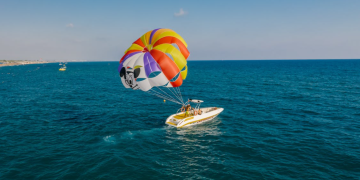Language immersion programs offer a unique opportunity for individuals to learn a new language while immersing themselves in the culture and lifestyle of a foreign country. By providing an immersive and authentic language-learning experience, these programs not only enhance language proficiency but also foster cultural understanding and personal growth.
Introduction
Language immersion programs have gained popularity in recent years as an effective method for learning a new language. By providing participants with opportunities to immerse themselves in a foreign language environment, these programs offer a holistic approach to language learning that goes beyond traditional classroom instruction.
Understanding Language Immersion
Language immersion involves learning a language by surrounding oneself with native speakers and using the language in everyday contexts. Immersion programs may vary in intensity, from full immersion, where participants use the target language exclusively, to partial immersion, where the target language is used alongside the learner’s native language.
Benefits of Language Immersion Programs
The benefits of language immersion programs are manifold. From academic advantages such as improved language proficiency and cognitive skills to personal benefits like increased cultural awareness and adaptability, immersion programs offer participants a unique and enriching learning experience.
Types of Language Immersion Programs
There are various types of language immersion programs available, catering to different preferences and needs. Full immersion programs offer the most intensive language experience, while partial immersion programs allow participants to balance language learning with other activities. Virtual immersion programs provide an alternative option for those unable to travel abroad.
Choosing the Right Program
When selecting a language immersion program, it is essential to consider factors such as program duration, location, curriculum, and support services. Participants should also assess their language proficiency level and personal goals to ensure that the program aligns with their needs.
Popular Language Immersion Destinations
Certain countries are renowned for their language immersion opportunities, offering participants the chance to learn languages such as Spanish in Spain, French in France, or Mandarin in China. These destinations not only provide a rich linguistic environment but also offer cultural experiences that enhance the learning process.
Cultural Exchange and Language Learning
Cultural immersion is an integral aspect of language learning, as it provides context and meaning to language use. By interacting with native speakers, participating in cultural activities, and experiencing daily life in a foreign country, learners develop a deeper understanding of the language and culture.
Challenges of Language Immersion
While language immersion programs offer numerous benefits, they also present challenges for participants. Adapting to a new environment, overcoming language barriers, and adjusting to cultural differences can be daunting tasks. However, overcoming these challenges can lead to personal growth and increased resilience.
Tips for Success
To maximize the benefits of language immersion, participants should adopt strategies such as setting realistic goals, practicing active listening, and seeking opportunities for meaningful interaction with native speakers. Additionally, maintaining a positive attitude and being open to new experiences are key to success in immersion programs.
Impact on Personal Growth
Language immersion programs not only enhance language proficiency but also contribute to personal growth and development. Participants develop intercultural competence, communication skills, and a global mindset, which are invaluable assets in an increasingly interconnected world.
Academic and Professional Opportunities
Proficiency in a second language opens doors to various academic and professional opportunities. Whether pursuing further education, seeking employment opportunities abroad, or engaging in cross-cultural collaborations, language skills are highly valued in today’s globalized society.
Financial Considerations
While language immersion programs offer many benefits, they can also be costly. Participants should carefully consider the financial aspects of the program, including tuition fees, accommodation, and living expenses, and explore options for scholarships, grants, or financial aid.
Testimonials and Success Stories
Real-life testimonials and success stories from past participants can provide valuable insights into the benefits and challenges of language immersion programs. Hearing firsthand accounts of language learning experiences can help prospective participants make informed decisions about their own language immersion journey.
Sustainability and Responsible Tourism
As interest in language immersion programs continues to grow, it is essential to consider the environmental and social impact of such programs. Sustainable practices, responsible tourism initiatives, and ethical considerations should be prioritized to ensure the long-term viability and integrity of language immersion experiences.
Conclusion
In conclusion, language immersion programs offer a dynamic and effective approach to language learning, combining linguistic instruction with cultural immersion. By providing participants with opportunities to engage with native speakers, explore new cultures, and expand their horizons, these programs empower individuals to become confident and proficient communicators in a globalized world.

FAQs
- Are language immersion programs suitable for beginners? Yes, language immersion programs cater to learners of all levels, including beginners. Immersion in a language-rich environment can accelerate language acquisition and help beginners build a strong foundation in the target language.
- How long does it take to become fluent in a language through immersion? The time it takes to become fluent in a language through immersion varies depending on factors such as language complexity, program intensity, and individual aptitude. However, immersion programs typically offer accelerated language learning compared to traditional classroom instruction.
- Can I participate in a language immersion program without prior language experience? Yes, many language immersion programs welcome participants with varying levels of language proficiency, including beginners. Immersion programs often provide language instruction tailored to the needs of participants, regardless of their prior experience.
- What cultural activities are included in language immersion programs? Language immersion programs typically include a variety of cultural activities such as city tours, visits to historical sites, cooking classes, and cultural workshops. These activities provide participants with opportunities to explore the local culture and enhance their language learning experience.
- How can I prepare for a language immersion program? To prepare for a language immersion program, participants can engage in language study prior to departure, familiarize themselves with the culture and customs of the host country, and set personal goals for language learning and cultural exploration. Additionally, maintaining an open mind and positive attitude can enhance the immersion experience.









